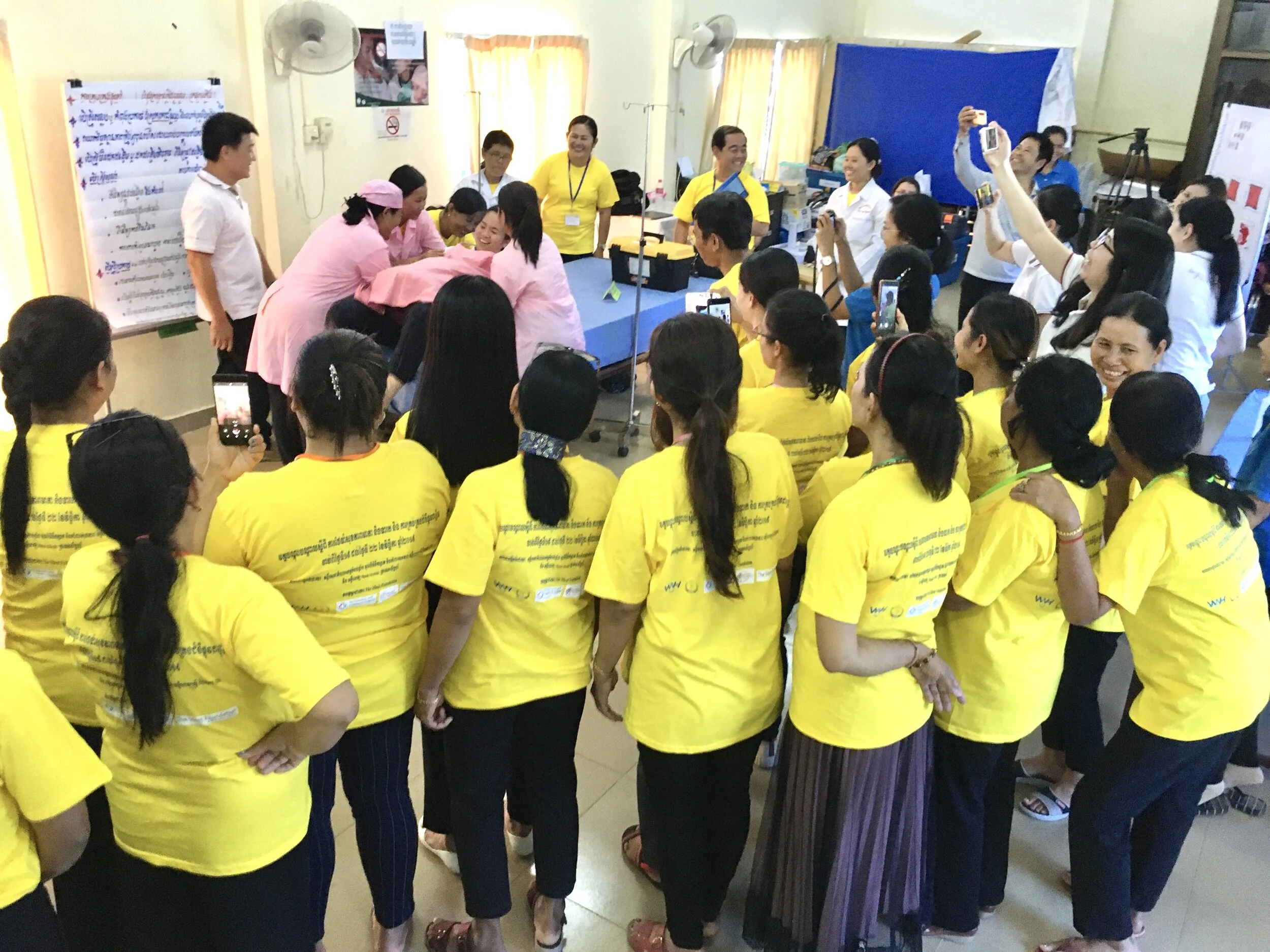Clean Water and Hygiene
When we started WAH Foundation, we looked into all aspects of what the communities in Kampong Chhnang were struggling to overcome. After a year of researching key capacity & resource limitations, multiple on-site visits, and liasing with qualified individuals for relevant & accurate insights, it was clear that access to clean water was essential to enable impact at scale.
Bicycle-Powered Clean Water Systems
Through our 15 years of on-ground experience and working closely with the local communities, WAH figured out early on that the most powerful way to work with communities long term was to work with the schools and healthcare centres. By partnering with staff at the school and healthcare centres who already have an invested interest in their jobs and the welfare of the people who they take care of (their students and patients), WAH can depend on these partners to take care of the clean water systems that have been designed to last a lifetime. Outside of the initial installation, school and healthcare centres are responsible for replacing old filters every five years (approximately), giving them ownership responsibility, dignity as partners, and meaningful empowerment.
Schools
Over the last 15 years, clean water systems have been installed in 285 schools. In 2020, there was a focus to upgrade the original systems to the current ones. There are a total of 549 schools in Kampong Chnnang, and WAH plans to install a clean water system in each school.
Health Centres
With the support of our generous partners, WAH continues to upgrade clean water systems & improve safe water access in health centres. In addition, in each of the rural health clinics, often in remote areas, nurses have been trained in emergency procedures and equipped with simple but significant life-saving kits.
Hygiene
As we finished installing the clean water systems in the hospitals and health centres, we started to see the numbers of infections and complications caused by dirty water go down. General hygiene awareness increased and the hygiene standards with nurses improved substantially. Poor hygiene can cause death, especially during childbirth. In addition to clean water, medical staff have been taught about hygiene by KKH and Mount Alvernia, including aspects like wearing of clean rubber gloves and not touching surfaces before any medical procedures.
As we continue to install the clean water systems in the schools, we attend water system opening ceremonies, which are a Cambodia tradition. We take this opportunity to use the time and undivided attention to go through efficient and thorough hand washing technique and the importance of hygiene particularly after using the bathroom and right before eating. Schools also use the opening ceremony to raise funds for new filters which will be needed after a few years.
Happy Hands
Having the clean water taps installed in schools, all students have been given simple instructions on how to wash hands thoroughly and before each meal.
Soap Making
WAH believes in providing real solutions and soap was a key factor. Last year, WAH team managed to perfect their recipe for their soaps and have distributed them accordingly.
Future of Clean Water Systems
Every day WAH strives to improve the clean water systems. We have constantly looked for improved performance, including parts, filters, pre filters, materials and fittings. Today a system can produce up to 400 litres per hour of clean water, for drinking, hand washing and dental hygiene. We believe bicycle driven systems are the best solution, because they require no generator or power source. The beauty of this system is that it is the children who provide the power through cycling, which is healthy and environmentally friendly. We still have over 300 systems to install in schools in Kampong Chhnang province, as there are 549 schools. They can be easily maintained, located in playgrounds, and integrated with a hygiene program. In future we will constantly look for improvements, and make sure maintenance remains as easy as possible to carry out.















